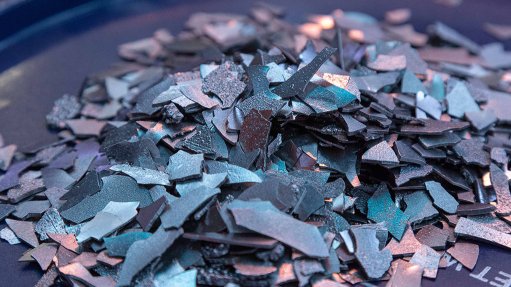Australia’s energy transition 'simply impossible', mining conference told
Australia’s energy transition is “simply impossible” under current policy settings and economic realities, analyst Aiden Morrison told delegates at the Diggers and Dealers Mining Forum in Kalgoorlie on Monday.
Speaking on a panel moderated by Tom Switzer, Morrison said Australia’s 2030 renewables targets were no longer credible and that the transition had stalled – except where revived by government subsidies.
“There is now no serious intellectual defence to the prospect that we would meet net-zero targets in 2050,” Morrison said. “Even if we had the right investment.”
Rejecting the idea that resistance to the transition was the main barrier, Morrison argued that large-scale renewable-energy deployment in Australia had already flatlined – and was only now showing signs of life due to public funding.
“It is now starting to show signs of life, but that is only because it has been forcibly, completely intubated and resuscitated by the force of subsidies,” he said.
Citing investment manager HMC Capital’s recent acquisition of a large renewables development portfolio, Morrison said the financial case for renewable energy remained flimsy – even with subsidies.
“Six days after they acquired this portfolio, [Climate Change and Energy Minister] Chris Bowen announced one of their pipeline projects as the recipient of about a billion dollars in future subsidies – and six months later, they still could not raise the funds to settle on the deal,” he said.
“At the moment, there is not a single honest dollar of profit to be made in the renewable energy generation sector.”
Morrison added that the costs associated with clean hydrogen were “absurd”, referencing a recent subsidy-backed project to partially decarbonise ammonia production. “About half a billion dollars to replace 7.5% of Orica’s gas requirements. That’s not $2/kg of hydrogen — it is closer to $12. It should put a nail in the coffin of the nonsense.”
Morrison also rejected the argument that Australia’s climate and geography positioned it well for renewable dominance. “The idea that ‘it is always sunny somewhere’ does not solve the problem,” he said. “To collect and transmit all that solar power across states would require catastrophically underutilised infrastructure.”
Canadian energy expert Dr Chris Keefer, who joined Morrison on the panel, offered a global perspective, arguing that emissions reductions in countries like Australia and Canada — each responsible for only 1% of global emissions — would do little to shift the climate trajectory.
“The levers of emissions reductions are not really in the hands of countries like Canada and Australia anymore,” he said. “China’s at 30%. The US is at 13%. India is going to surpass that soon.”
While acknowledging the risks of climate change, Keefer stressed the need for realism about costs and geopolitics. “I experience a certain amount of cognitive dissonance. I am climate concerned, but I’m an energy realist,” he said.
He pointed to the growing disconnect between climate rhetoric and outcomes. “Since binding emissions targets began with Kyoto in 1997, the absolute amount of fossil fuels we use has increased by 55%, and emissions have almost doubled.”
Keefer said China’s dominance in green technology was driven not by climate concerns, but by energy security.
“China is still the world’s largest importer of oil. They are doing this for geopolitical reasons. They are hedging against their vulnerability to blockade,” he said.
He added that while China is lauded for its renewables investment, it continues to expand coal at the same time. “They add a concurrent amount of coal capacity – and a bit of nuclear too – every year.” “So really, they are repeating the honeymoon phase over and over again. They are not really shifting towards the dominated renewable energy sectorives.”
In sum, Keefer said much of the climate conversation remained divorced from energy realities. “We spend a lot of hot air talking about the issue, but we are not numerate about it. That’s kind of my call to action.”
ROOM FOR REALISM
Despite their scepticism of current net-zero policies, Morrison and Keefer stressed that their views stem not from climate complacency, but from a desire for practical, economically viable solutions.
Morrison pointed to data from global risk assurance group DNV that suggests even under generous assumptions, emissions reductions by 2050 would likely amount to only a one-third cut – with global average temperatures still rising by about 2.3 °C by the end of the century. “That still gives you a sense of what’s realistically likely to happen,” he said. “I don’t celebrate that... but we need to be realistic, to not misallocate capital on this question.”
Both panellists found common ground on the promise of hybrid energy systems for remote mine sites, where renewables can reduce costly diesel use. “If they get to 50%, 60%, 70% on-site, that is a good use case,” said Morrison. “But it also tells you the limit of what can be achieved at grid scale, where coal and uranium are far cheaper inputs.”
Keefer, who is also a medical doctor, said the energy transition must now incorporate adaptation and triage thinking. “We need to mobilise limited resources to have the greatest impact,” he said. “We are locked into this. We are not getting to net zero — and that means the climate will continue to warm.”
He called for greater openness to nuclear energy, citing uranium exports as a powerful, under-acknowledged contribution to global decarbonisation. “One half of Australia’s emissions are offset by its uranium exports,” he said. “Your entire coal fleet’s emissions are essentially offset. Sense needs to return.”
Morrison concluded with a call to action: “Mine uranium. Lift the ban in Western Australia. It’s one of the least intrusive and safest ways of extracting ore — and it produces the best hope we have to decarbonise electricity globally.”
Article Enquiry
Email Article
Save Article
Feedback
To advertise email advertising@creamermedia.co.za or click here
Press Office
Announcements
What's On
Subscribe to improve your user experience...
Option 1 (equivalent of R125 a month):
Receive a weekly copy of Creamer Media's Engineering News & Mining Weekly magazine
(print copy for those in South Africa and e-magazine for those outside of South Africa)
Receive daily email newsletters
Access to full search results
Access archive of magazine back copies
Access to Projects in Progress
Access to ONE Research Report of your choice in PDF format
Option 2 (equivalent of R375 a month):
All benefits from Option 1
PLUS
Access to Creamer Media's Research Channel Africa for ALL Research Reports, in PDF format, on various industrial and mining sectors
including Electricity; Water; Energy Transition; Hydrogen; Roads, Rail and Ports; Coal; Gold; Platinum; Battery Metals; etc.
Already a subscriber?
Forgotten your password?
Receive weekly copy of Creamer Media's Engineering News & Mining Weekly magazine (print copy for those in South Africa and e-magazine for those outside of South Africa)
➕
Recieve daily email newsletters
➕
Access to full search results
➕
Access archive of magazine back copies
➕
Access to Projects in Progress
➕
Access to ONE Research Report of your choice in PDF format
RESEARCH CHANNEL AFRICA
R4500 (equivalent of R375 a month)
SUBSCRIBEAll benefits from Option 1
➕
Access to Creamer Media's Research Channel Africa for ALL Research Reports on various industrial and mining sectors, in PDF format, including on:
Electricity
➕
Water
➕
Energy Transition
➕
Hydrogen
➕
Roads, Rail and Ports
➕
Coal
➕
Gold
➕
Platinum
➕
Battery Metals
➕
etc.
Receive all benefits from Option 1 or Option 2 delivered to numerous people at your company
➕
Multiple User names and Passwords for simultaneous log-ins
➕
Intranet integration access to all in your organisation






















